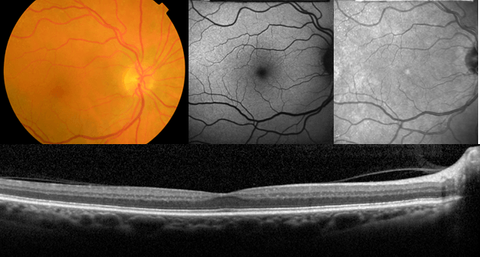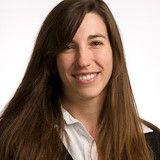
Project Description
Age-related macular degeneration (AMD) is the leading cause of blindness in elderly, affecting more than 50 million Europeans. About 15% of patients progress to irreversible vision changes and ultimately go blind. Therapies to slow progression are becoming available, but clinicians are currently not able to foresee who will progress and will need swift action to save sight. The goal of this project is to automatically extract reliable biomarkers from multimodal and longitudinal retinal images using deep learning that can predict AMD progression. How to effectively combine heterogeneous 2D and 3D data from different projections with deep learning architectures is a research question that will be addressed in this project, as well as the analysis of temporal evolution of the imaging data. We are also interested to investigate semi-supervised approaches because complete annotations are not always available for all images.
You will be part of a multidisciplinary team, consisting of machine learning and clinical researchers and will work closely with the Ophthalmology departments in RadboudUMC and ErasmusMC, as well as international groups and consortia.
Requirements
We are looking for ambitious deep learning engineers, data scientists, or machine learning experts. You should be creative, enthusiastic and have an MSc/Ph.D. degree in Computer Science, Data Science, Physics, Engineering or Biomedical Sciences or similar, with a clear interest in deep learning, image analysis and medical applications. Good communication skills and expertise in software development, preferably in Python/C++, are essential. Experience with machine learning should be evident from the (online) courses you've followed, your publications, GitHub account, etc. Experience with medical image processing is a plus.
Terms of employment
You will be appointed as a PhD student with the standard salary and secondary conditions for PhD students in the Netherlands. Your performance will be evaluated after 1 year. If the evaluation is positive, the contract will be extended by 3 years. The research should result in a PhD thesis.
Organization
The A-eye Research Group is part of the Diagnostic Image Analysis Group (DIAG), which is a research division of the Department of Radiology and Nuclear Medicine of the Radboud University Medical Center Nijmegen. Nijmegen is the oldest Dutch city with a rich history and one of the liveliest city centers in the Netherlands. Radboud University has over 17,000 students. Radboud UMC is a leading academic center for medical science, education, and healthcare with over 8,500 staff and 3,000 students.
The focus of DIAG is the development and validation of novel methods in a broad range of medical imaging applications. Research topics include image analysis, image segmentation, machine learning, and the design of decision support systems. Application areas include neuro, breast, prostate, lung and retinal imaging and computational pathology. Key to the success of the group is close cooperation with clinicians. Currently, the group consists of around 50 researchers.
We offer excellent research facilities with large data storage facilities, a cluster of 100 high-end GPUs which can be scaled dynamically to include cloud servers, and support from a team of research software engineers, data analysts, and clinicians.
Application
You can already apply directly by e-mail to Clarisa Sánchez. In your application include a motivation letter, your CV, list of grades and links to publications and your Master thesis or other work you’ve written in English.
All applications will be processed immediately upon receipt until the position has been filled.
For further information contact Clarisa Sánchez.
